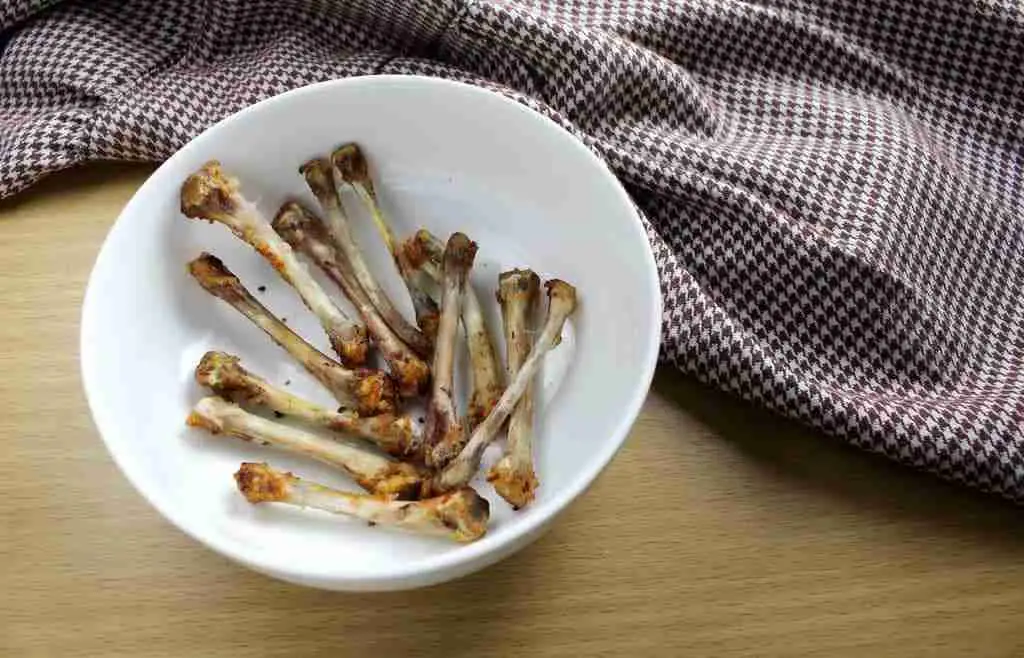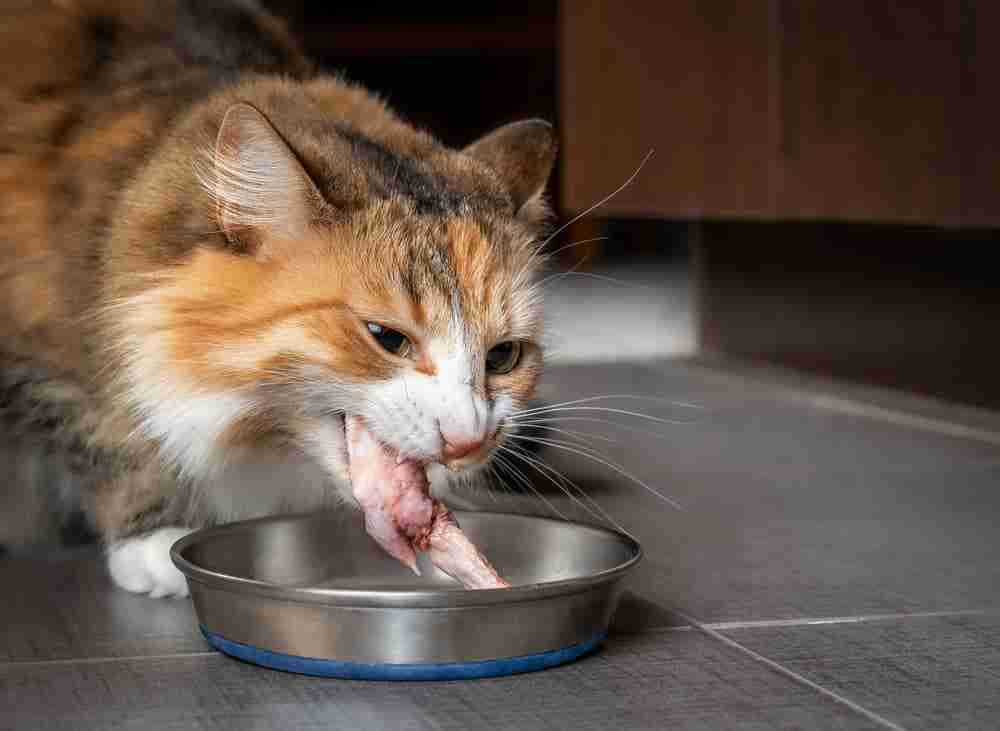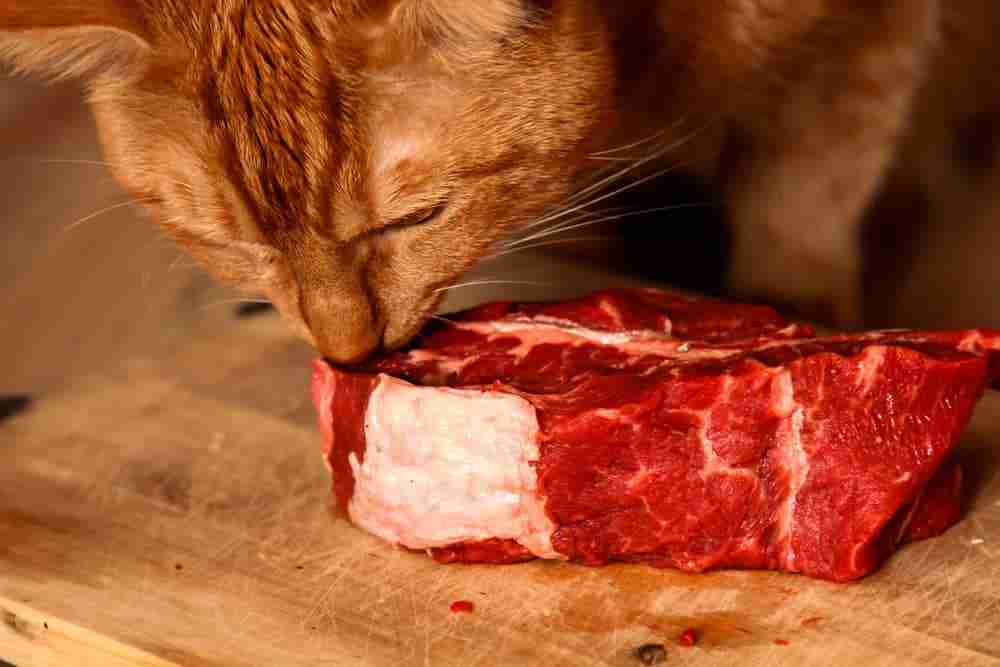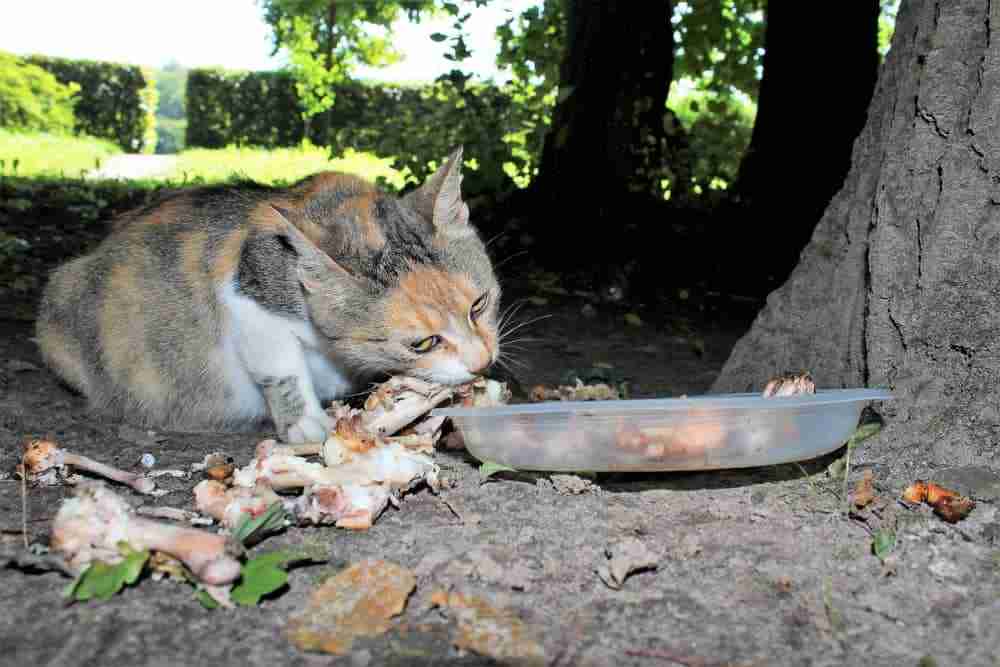When we think of pets chewing bones, we most often associate the activity with dogs. A dog can lay down and chew on a bone for what seems like forever without getting bored.
Have you ever wondered why dogs like bones?
Well, chewing bones can provide both enjoyment and health benefits to your furry friend, but did you know that cats also enjoy chewing bones?
Like dogs, chewing bones can provide both entertainment and health benefits to your feline friend. While your cat may enjoy their kibble or soft food, don’t be afraid to break up the monotony with something extra special like chicken, beef, or turkey right on the bone.
Your cat will surely appreciate your indulging their carnivorous nature with something that will make them both happier and healthier.
What bones are the best bones for cats?

If you have ever been to a pet store, you may have noticed that there is no shortage of chewy treats for your dog to have. There are rawhides, bully sticks, and even raw bones available for purchase. You may be overwhelmed at the idea of what to pick out for your cat to chew on if the selection is anything like it is for dogs.
Well, you don’t need to go to the pet store to find a bone for your cat to enjoy. In fact, going to your local supermarket or butcher shop will give you plenty of options for your feline friend. A meaty bone is a purr-fect treat for your cat.
Chicken necks and turkey tails are rich in protein and chewy enough to keep them occupied for a while. A cat can eat raw chicken bones with no problems. A beef bone may also be tempting and satisfy them mentally and physically.
If you’re wondering if your cat can handle chewing meat straight off the bone, you need not worry. Your cat’s strong jaw and sharp teeth will be enough to rip and tear the raw meat off a bone, and that trademark rough tongue will allow them to lick the bone clean.
Can my cat Chew On pork Bones?
Like most enjoyable things in life, pork should be enjoyed by your cat in moderation. Pork is a type of meat that is high in both fat and sodium. If your cat consumes pork regularly then the salt can be harmful to their overall health.
The fat in pork can lead to unwanted weight gain which can then lead to obesity in your cat. Also, it is high in sodium, which will increase your cat’s thirst and put extra stress on their liver, kidneys, and heart. Too much sodium can even cause sodium poisoning which will require immediate medical attention from your cat’s vet.
You shouldn’t let your cat eat too much pork but chewing on rib bones for entertainment or for a chewy taste shouldn’t be a problem. Most cats do not have a jaw big enough to chew through a pork rib bone but they should be able to get stimulation and entertainment from scratching and licking away!

Chewing Bones Is Feline Fun
While your cat may be your sweet little one, remember that they are natural hunters and carnivores. So while they may not stand up to their lion or tiger ancestors, that doesn’t mean their predatory instincts go away if they sleep in a cat tree.
Your cat will tap into their basic instincts each time you give them a bone to chew on and will not only leave their bellies full, but it will make them feel like a proud hunter with fresh prey.
A bone a day keeps the tartar away!
As your cat ages, plaque and tartar may build up on the surfaces of their teeth.
An excellent way to help keep plaque and tartar at bay is to give them a bone to chew on. Whilst cats don’t necessarily chew when they eat – they use their teeth for slicing and crunching – they will chew out of curiosity and entertainment.
While they are chewing the bone, they are removing cartilage and marrow which then scrapes plaque off their teeth. The chewing motion also acts as a way to massage their gums similar to an electric toothbrush for humans.
If you are concerned about your cat developing periodontal disease, gingivitis, or other dental issues, chewing a meaty treat is a surefire way to fight back against plaque.
Beware of cooked bones!
If you envisioned cooking up a roast chicken or a delicious steak and sharing the bones with your cat, you may want to reconsider before you call your cat to the dinner table. While a cat can eat raw chicken or cooked meat, you should steer clear of giving your cat a bone that has been cooked even if it has meat on it.
Cooked bones can splinter when they are chewed on. The splinters can cut open your cat’s mouth, tongue, or gums.
Additionally, if your cat swallows the splinters, they can cause internal damage by puncturing their esophagus, stomach, or intestines. Splintered bones can also cause a blockage that requires surgery to remove, which will be both dangerous and expensive.
Raw bones are the best choice for your cat to enjoy. While much safer than their cooked counterparts, you should always monitor your cat while they eat raw bones to ensure their safety anyway.

What to Do If Your Cat Won’t Eat a Bone
When you give your cat that first meaty bone you are probably expecting them to pounce on it, cart it off, and not see them again until the bone is, well, as dry as a bone. So you might be surprised if your cat doesn’t immediately go for the bone as you had expected.
If your cat turns their nose up at the bone or simply seems confused by it, there are steps you can take to ease them into eventually chewing on a bone independently. Start by cutting up the meat on the bone into very small pieces and leave them for your cat.
If your cat still doesn’t take to it, try different meat. Like us, cats have food preferences and will be more eager to eat something they find tasty than just any old meat you offer. Once you have found meat your cat will accept, cut the meat up into slightly larger pieces than before. This will help them become accustomed to chewing on larger chunks of meat.
This will be a gradual process that should move at your cat’s pace. If they seem uncomfortable about the size of the meat you’re giving them, scale back. Ideally, your cat will graduate to chewing and eating meat right off the bone.
You may even find that your furry friend will devour an entire chicken neck or chicken wing.
Conclusion
If you thought bones were just for dogs, then your cat may be missing out on all the fun. Giving your cat uncooked, meaty bones will provide them with sustenance, fun, and health benefits.
Chicken, turkey, and beef bones are excellent options for your cat to chew on. If your cat prefers pork, you should limit its meat intake as the high fat and sodium levels can cause health issues for your feline.
You may find that your cat doesn’t want to chew a bone when you first offer it to them. Take the time to find a meat that your cat likes then cut it up into small pieces. You can work your way up to giving your cat larger pieces of meat and eventually give your cat meat on a bone when they are ready.
Take care not to give your cat cooked bones as cooked bones can cause mild to severe injuries to your cat’s mouth, organs, and intestines. Raw bones are safest for your cat to gnaw on.
Follow these tips and the hunter in your kitty will be happy and well-fed!

